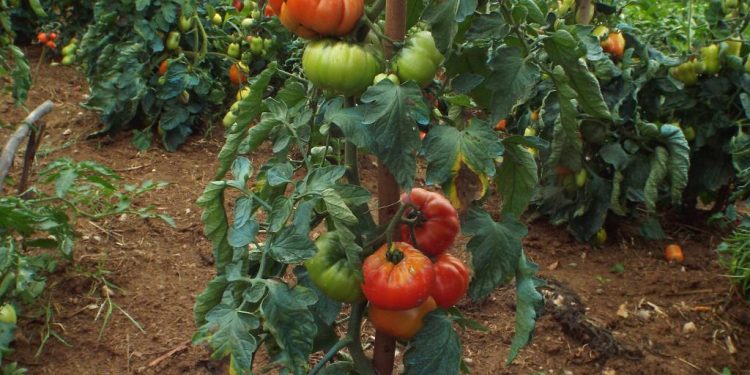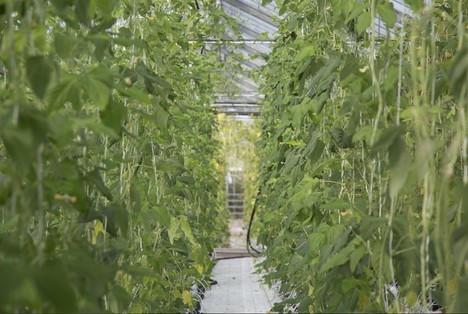Tomato plants are highly susceptible to root infection by Spongospora subterranea and are commonly used as bioassay hosts. The impacts of root infection with S. subterranea on plant productivity and yield have been debated. Recent experiments with potato, the major economic host of S. subterranea, have indicated significantly reduced plant growth and potato yield following heavy infection. However, there have been very few similar studies that have examined the possible impacts of S. subterranea infection on tomato plant growth. Three tomato cultivars, “Grape,” “Roma” and “Truss,” were challenged with S. subterranea inoculum in hydroponic culture. Moderate to severe zoosporangial infections were observed with minor but statistically significant differences in susceptibility among the three tomato cultivars. Zoosporangial root infection in the absence of root gall formation resulted in significantly diminished shoot lengths and plant fresh weights in pathogen challenge tests conducted both in hydroponic culture and glasshouse-grown plants in potting mix. Root lengths were reduced, but the differences were statistically significant in a single trial only. The findings from this study demonstrate that, as with potato, root infection by S. subterranea can result in reduced tomato plant growth and that root gall production associated with root infection was not necessary for this retardation of growth response. This further suggests that possible yield impacts in other crop species that are hosts for S. subterranea root infection are worthy of examination.
Reference: , , , . Zoosporangial root infection of tomato by Spongospora subterranea in hydroponic and glasshouse culture results in diminished plant growth. J Phytopathol. 2018; 166: 412–419. https://doi.org/10.1111/jph.12701










